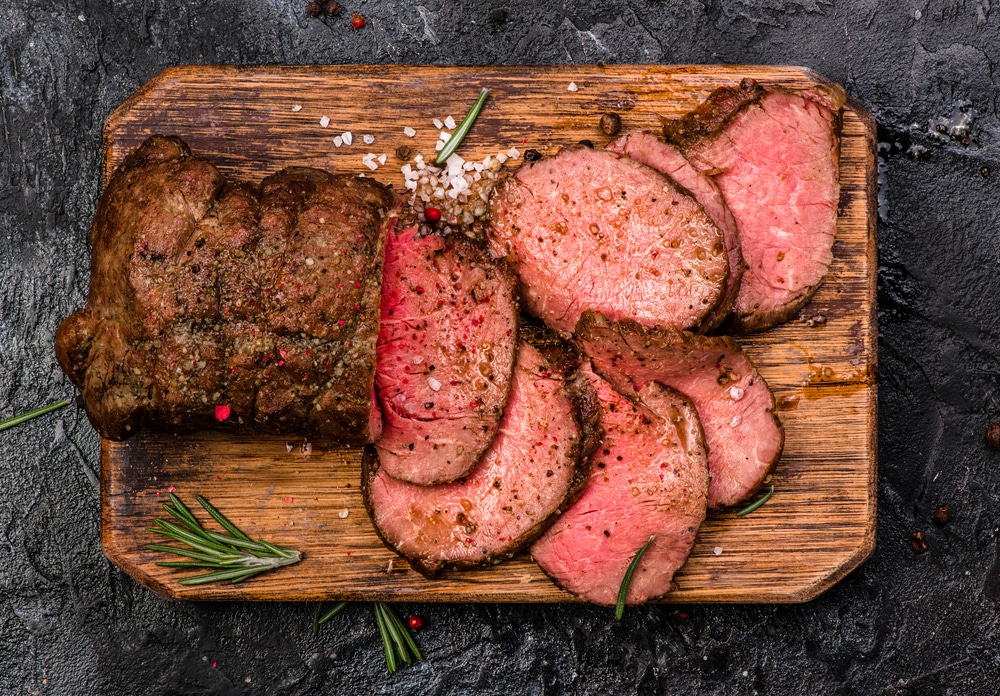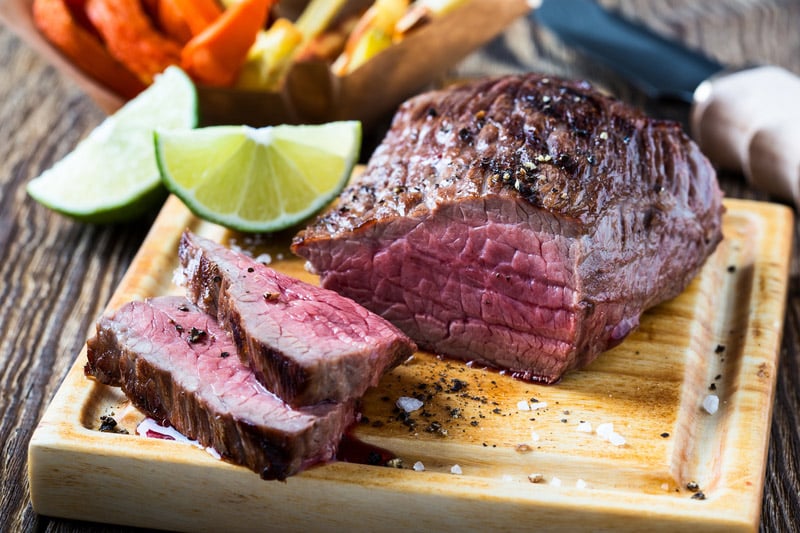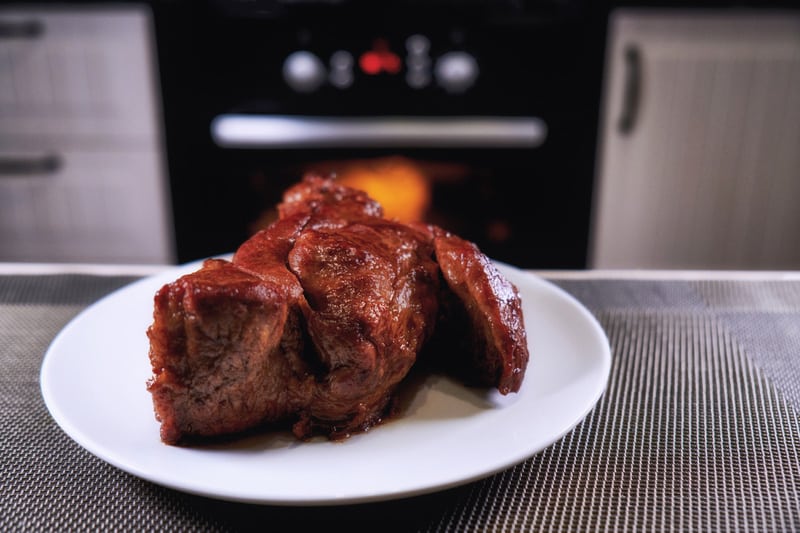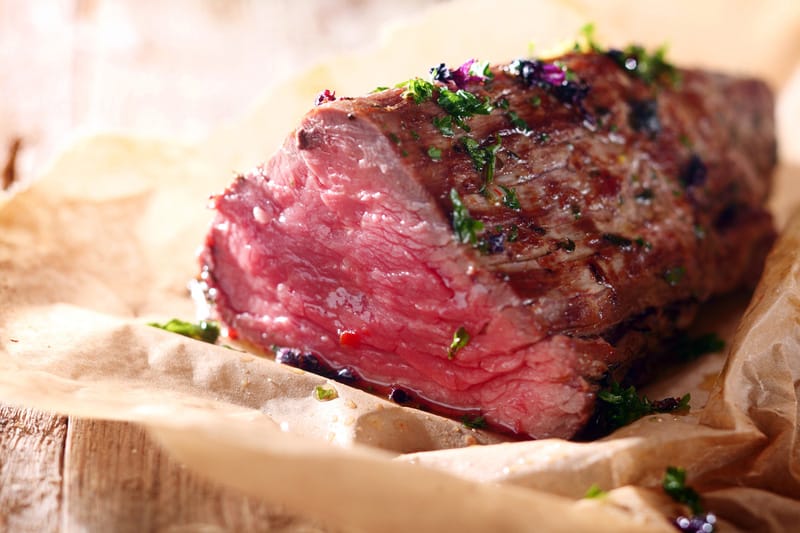Do You Drain Blood Before Roasting Beef

Even some hardened meat eaters may be put off at the sight of red juices oozing from their roast beef after it's carved. To set your mind at rest from the beginning – this isn't blood. When an animal is slaughtered at the abattoir, all the blood is drained away.
Is Roast Beef Supposed to Be Bloody?
The meat contains a protein called myoglobin which is what adds a red color to the meat and its juices. Once it's exposed to the air or heat, it turns brown. This is why well-cooked meat is not red inside.
How Should the Perfect Roast Beef Look?
When serving roast beef, you want it to look and taste delicious. It should be a caramelized golden brown on the outside and a succulent pinky-red inside.
Those who prefer their meat a little more well done can go for a pink rather than red color but please don't take it further than this or it will be dry, crumbly, and unpalatable.
How to cook the perfect Sunday roast
For many families, Sunday is the only day when they have time to cook a big family dinner and all sit around the table together. While this may seem old-fashioned, we say it's a tradition worth resurrecting!

That's why we're going to tell you here how to cook the perfect (not bloody!) roast beef.
- You first need to do some simple calculations. It's worth it, we promise. Weigh the piece of meat.
- If you want it medium-rare, you should cook it for 20 minutes per half kg.
- For medium (recommended), cook it for 25 minutes per half kg. The oven temperature should be set at 240˚C for the first 20 minutes, then reduced to 180˚C for the remainder of the cook. Be sure to turn the temperature down after 20 minutes because if it's left on high, the meat will dry out.
- Once the time is up, push your meat thermometer into the thickest part, leave it in for half a minute, then take a reading.
- For rare, it should read 50˚C, and
- For medium, it should read 60˚C. If it reads less than that, put the roast back into the oven for another 5 to 10 minutes.

- Once the meat has been removed from the oven, please don't carve it straight away. You must allow the meat to rest for fifteen minutes. If you cut into the meat straight away, a lot of the juices will come out, making a mess and causing your meat to be dry.
- Resting it allows the fibers to relax and the juices to be redistributed, creating a more tender, juicier roast.
- Unrested meat is one of the reasons people complain that their meat is "bloody". It's not very appetizing when the pink juices run all over the plate. If it does, tip these delicious juices into the gravy and nobody will be any the wiser.
- Once your meat has rested, carve it with a very sharp knife into thin slices. Cut against the grain to ensure tenderness.
What if deli roast beef is bloody?
Again, if your deli meat is red inside, that's not blood, it's myoglobin and it's perfectly safe to eat. Your deli meat isn't raw. It has probably been preserved with a special brine containing nitrites and potassium chloride salt.

These chemicals cause the meat to stay pink/reddish because they stabilize the color pigments. Many other deli meats are pink for the same reason – smoked turkey or ham being examples.
Conclusion
We hope this article has set your mind at rest about the color of your roast beef. We hope you enjoy your Sunday roast!

Source: https://missvickie.com/is-roast-beef-supposed-to-be-bloody/
0 Response to "Do You Drain Blood Before Roasting Beef"
Post a Comment